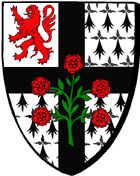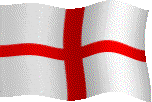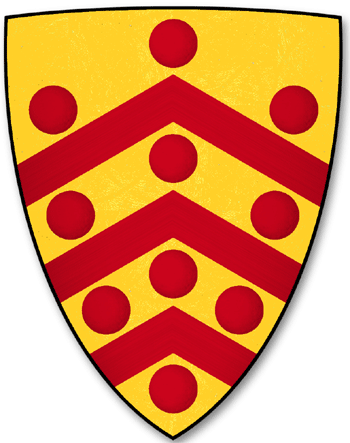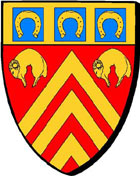
Encyclopédie Marikavel-Jean-Claude-EVEN/Encyclopaedia/Enciclopedia/Enzyklopädie/egkuklopaideia
 |
|||

England Bro-Saoz |
 |

Bro-Gerc'hloioù Gloucestershire |
|
Gloucester Glevum Colonioa Nervia Glevensis |
| pajenn bet digoret e 2001 | page ouverte en 2001 |
* forum du site Marikavel : Academia Celtica |
dernière mise à jour 11/07/2025 11:18:10 |
![]()
|
Définition / Displegadur : Chef-lieu du comté de Gloucesterhire, sur la rive sud de l'estuaire de la Sabrina / Severn. Deuxième colonie romaine de (G) Bretagne, fondée en 96-98. En langue galloise : Caer Loyw / Caer Loew
|
|
![]()
|
i
Pierre tombale d'un cavalier Thrace, de Gloucester, renversant un Breton de l'Ouest: épisode du début de la conquête Extrait de I.-A. Richmond : Roman Britain |
|||
|
Histoire- Istor : - Ville de la tribu bretonne des Dobunni, sur la rive gauche de la Sabrina / Servern, dans l'estuaire. - Nous n'avons pas d'indications concernant le site de Glevum avant la conquête romaine. - Les Dobunni sont écrasés par la Legio II Augusta, commandée par Vespasien, à Corinium / Cirencester, en 49-50. Cette légion s'y installe jusqu'en 57, date à laquelle elle est transférée à Iscan Dumnoniorum / Exeter. C'est alors la Legio XX Valeria, jusqu'alors stationnée à Camulodunm / Colchester, qui s'installe à Glevum.
Reconstitution archéologique de la forteresse romaine de Glevum :
|
![]()
|
Étymologie / Gerdarzh : * ALF Rivet & Colin Smith, P. 368 : GLEVUM SOURCES Inscriptions : - RIB 161 (= Burn, 1969, No. 83, p. 65), the plinth from a monumental tomb at Bach of a man who was DEC(URlO) COLONIAE GLEV(ENSIS) - CIL VI. 3346 (Rome), the tomb of a man who had been frumentarius of Legio VI at the (COLONIA) NER(VIA) or NER(VIANA) at GLEVI. -JRS, XIX, (1929), 216 = CIL XVI. 130 : the military diploma (found at Colchester) of a soldier of Cohors I Fida Vardullorum, who is described as GLEVI 'of Gloucester'; A.D. 149-190. (A note in CIL says 'pro Glevi exspectas Glevo') - EE IX. 1283, 1284 : tiles stamped R P G. i.e. Res Publica Glevensium or Rei Publicae Glevensíum (see JRS, XLV 1955), 68-72) ----- - AI 485, (Iter XIII) : CLEVO - Ravenna 10629 (= R&C 62) : GLEBON COLONIA -also possibly Ravenna 10612 (= R&C 29) : CLAVINIO, var. CLAVIMO (see also Ravenna's Coloneas 10614 = R&C 33 under COLONIA-2) The above sources present no problem. AI has initial C for G, a frequent error. See the entry for CLAVINIUM. DERIVATION. Jackson in Britannia, I (1970), 70-71, indicates British *Gleuon, earlier *Glaiuon, to Which Welsh gloyw or gloew 'bright' is related (Holder I. 2026 gives *gleivo- 'glänzend, klar'; Williams *glevo-). This is the generally accepted etymology; hence 'bright place, bright town'. Later forms support it : the city is Cair Gloui (better, Gloiu) in Nennius 49, in modern Welsh Caer Loyw or Loew (Jackson) ; Anglo-Saxon Gleawcaester > Gloucester. Jackson however raises two doubts : (I) 'It is doubtful whether Welsh gloyw, gloew "bright" really comes from *glaiuo-, because of the Irish cognate' ; 2) 'A town name consisting of a basic adjective alone without any suffix, literally "bright", would be peculiar. This would leave the name unexplained. 'The first difficulty perhaps depends upon some irregular phonetic development either within Welsh or Irish, which we no longer perceive. As for the second, it should be said that water-names are not infrequently formed in this way, e.g. British Leuca 'shining (one)', Sena 'old (one) ', and most relevant of all - if it is a place (and adjectival, which is not certain) - Glanum 'pure (one)'. Abroad, adjectival formations in late Latin or early Romance are common, for example in Spain Angosto, Prias, Panda, Salientes (ELH I. 513). Sometimes a noun no longer expressed has tobe assumed, e. g. in Spain *(Capitias) Rubras > Rubias. Glevum is then unusual, but not unique. We can either assume an inexpressed noun, or possibly imagine a metaphorical extension of the basic sense 'bright' to `noble, famous (place)'. See also COLONIA-l and COLONIA-2. IDENTIFICATION. The Roman colonia (succeeding a legionary fortress) of Gloucester (SO 8318); the name Nervia or Nerviana reflects its foundation in the reign of Nerva (A.D. 96*98). ************** * ALF Rivet & Colin Smith : CLAVINIUM. (?) SOURCE . - Ravenna, 10612 (= R&C 29) : CLAVINIO, var. CLAVIMO DERIVATION. This name if taken literally (as it is by R&C) could have any of the roots mentioned for the previous name; or it could perhaps be analysed Clavinium, with a second element as in Magiovinium, where it is unexplained. However, the form is most probably corrupt. Dillemann (p. 66) thinks it a conflation of parts of two other names, and has a detailed argument in support of this. We think it more likely that Ravenna's form is simply a corruption of Glevum, misread from a map. It should be noted that there is a detached *Colonía floating in the Cosmographefs list at 106,12 (textually Coloneas), Which is almost certainly an adjunct of the name of Gloucester, the only colonia in this region, so that the present Clavinio at 106,12 could Well represent Glevum, the two parts of the name having been written separately (one above the other, perhaps; see p. 191) ; the full name, taken by the Cosmographer from a different map, figures as Glebon colonia at 106,29. For miscopyings involving -nio or -mo, see p. 203. IDENTIFICATION. Probably a duplication of Glevum, q.v. ************** * ALF Rivet & Colin Smith : COLONIA (2) SOURCE - Ravenna 19614 (=R&C 33) : COLONEAS R&C take Ravenna's form as a true one,
think it from a personal name Colonius,
and locate it in Dorset. But it is simplest to regard the name as properly Colonia. DERIVATION. See COLONIA 1. This colonia was in its full official form from Colonia Nervia (or Nerviana) Glevensium, founded in A.D. 97. IDENTIFICATION : The roman colonia at Gloucester (SO 8318) ********************************************************************* * Eilert Ekwall : Old briton Glevum, Holder; Cair Gloui, c. 800 HB; Gleawecester, 804 BCS 313; Glowcester DB; -ceastre, 1093 ASC(E); Gleo- Glouchaestre, 1205 Lay. "Brit. Glevum belongs to OW Glouiou, Welsh gloew, gloyw (from glevo-) "bright" and means "bright, splendid place, or the like. This was adopted at an early date in a form that gave OE Gleaw-, and later in a form that gave OE Glowe-". To the original name was added OE ceaster : roman fort. ************** Formes bretonnes anciennes : - Nennius : Cair Gloui / Cair Gloiou. - Geoffroy de Monmouth : Kerglou. - Jesus College : Kaer Loyw - Divers : Apparemment appelée Glorecester dans le Roman de Perceval. Explication étymologique : celle-ci , semble pas résolue de maçon définitive. ************** |
![]()
|
Sources; Bibliographie / Eien; Levrlennadur : * I.-A. RICHMOND : Roman Britain. Penguin Books. 1955-1973 * Eilert EKWALL : The Concise Oxford Dictionary of English Place-names. Clarendon Press. Edition 1980. * ALF RIVET & C. SMITH : Place-names of Roman Britain. Batsford Ltd. London. 1979-1982. - envoi de : Gloucester Lobrary, 08.07.1982 |
![]()
|
Liens électroniques des sites Internet traitant de Gloucester / Glevum : * Site communal : http://www.gloucerster. gov.uk/Content.aspx * Autres liens : - http://www.roman-britain.org/places/glevum.htm - http://www.drostle.com/glevum.html - http://romanhistorybooks.typepad.com/roman_history_books_and_m/2007/02our_current_rea.html * Wikipedia anglais : http://en.wikipedia.org/wiki/Glevum * Wikipedia brezhonek : * forum du site Marikavel : Academia Celtica * Autres pages de l'encyclopédie Marikavel.org pouvant être liées à la présente : http://marikavel.org/heraldique/bretagne-familles/accueil.htm http://marikavel.org/broceliande/broceliande.htm * solidarité nationale bretonne avec le département de Loire Atlantique : Loire-Atlantique * sauf indication contraire, l'ensemble des blasons figurant sur cette page ont été dessinés par J.C Even, sur bases de GenHerald 5. * Le blason de Gloucester est adapté d'un dessin provenant de Wikipedia. * Introduction musicale de cette page : Bro Goz Ma Zadoù, hymne national breton, au lien direct : http://limaillet.free.fr/MP3s/BroGoz.mp3 hast buan, ma mignonig, karantez vras am eus evidout go fast, my little friend, I love you very much |
![]()